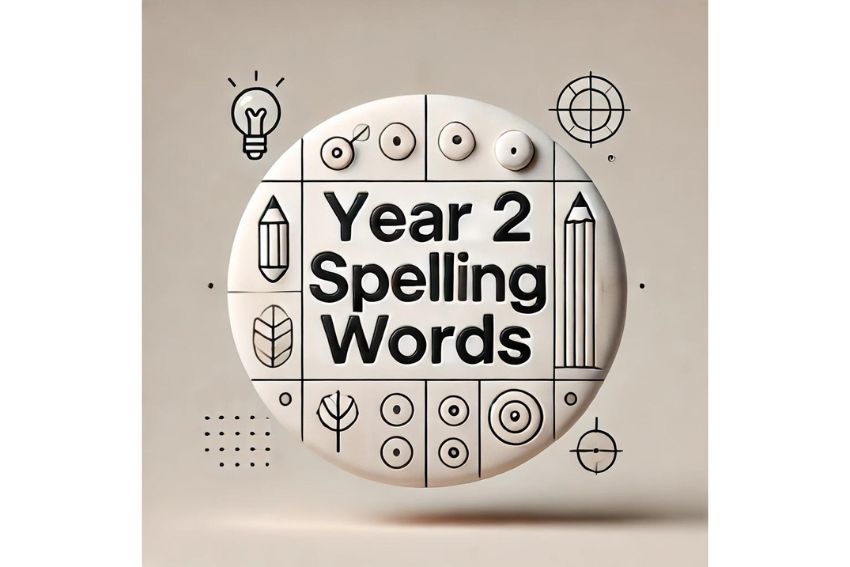Mastering GCSE English Writing: Essential Skills for Exam Success

GCSE English writing is a critical component of the English language exam, testing your ability to express ideas clearly, creatively, and persuasively. Success in GCSE writing isn’t just about having good ideas—it’s about how well you can communicate them.
Writing skills are paramount in achieving success in the GCSE English Language exam. They not only demonstrate a student’s understanding of the language but also showcase their ability to express ideas clearly and creatively.
Mastering GCSE English language writing skills is crucial for your future academic and professional pursuits. In this guide, we’ll walk you through everything you need to excel in GCSE English writing. We’ll delve into the different types of writing assessed in the exam, provide practical tips for improving your skills, and offer guidance on avoiding common pitfalls.
By the end of this guide, you should feel more confident in your ability to tackle GCSE English Writing effectively, equipped with practical tips, strategies, and real-world examples to improve your writing for the exam.
Understanding the Exam Requirements
The GCSE English Language exam not only evaluates your reading and comprehension abilities but also measures your proficiency in various writing styles, including descriptive, persuasive, and informative writing.
By familiarising yourself with the exam format, you can focus on honing the right set of skills and aligning your revision strategies accordingly. You’ll be expected to showcase a strong command of language, an ability to express ideas creatively, and the competency to adapt your writing style to suit different audiences and purposes. Additionally, the exam requires you to demonstrate clarity, coherence, and effective use of literary techniques to enhance your written work.
Understanding the requirements and format of each section of the exam is essential to achieve a high score. The exam is divided into two main papers, each with a specific focus and a distinct set of expectations:
Breakdown of the GCSE English Language Exam Format
The writing section of the English Language exam is designed to test your ability in a range of writing styles, including descriptive, persuasive, and informative writing. You’ll be required to demonstrate your creativity, structure, and ability to tailor your language to different audiences and purposes.
The GCSE English writing exam consists of two primary papers:
- Paper 1: Explorations in Creative Reading and Writing
This paper evaluates your reading comprehension skills through an unseen literary text and requires you to craft a creative piece of writing.
- Paper 2: Writer’s Viewpoints and Perspectives
This paper focuses more on transactional writing. It tests your understanding of non-fiction texts and asks for pieces of writing like letters, articles, or speeches that articulate your perspective on a given topic, often requiring persuasive or informative content.
These papers assess a range of writing skills, and it is critical to know what to expect to perform well on each.
GCSE English Language Writing Assessment Criteria

The GCSE English Language exam requires students to master a variety of writing styles, each evaluated based on a specific set of assessment criteria. Understanding these criteria is crucial to achieving high marks in your writing assignments. The assessment covers five main areas:
- Content: How well you address the question or prompt, including the depth and clarity of your ideas.
- Organization: Your ability to structure your writing logically and coherently.
- Vocabulary: The range and accuracy of your word choices, including figurative language.
- Grammar: How well you apply standard grammar rules and sentence structures.
- Accuracy: The overall correctness of your writing, including syntax, mechanics, and spelling.
In order to master GCSE writing technique let’s break down the key writing styles you’ll encounter and how you can approach each one effectively.
Descriptive Writing
In descriptive writing, you’re asked to create vivid, sensory-rich scenes that allow the reader to imagine what you are describing. Here are some essential tips:
- Use sensory details: Incorporate sight, sound, smell, taste, and touch to bring your descriptions to life. Engage all five senses to create a rich narrative. For example: Instead of saying, “The flowers are pretty,” you might say, “The vibrant red roses bloomed under the golden sunlight, releasing a fragrant scent that filled the air.”
- Show, don’t tell: Instead of stating emotions or actions, illustrate them with descriptive phrases. For example, rather than saying “She was scared,” write “Her hands trembled as she fumbled with the lock.”
- Vary sentence structures: Use a mix of short, punchy sentences and longer, more complex ones to create atmosphere and pace.
Persuasive Writing
Persuasive writing requires you to convince the audience of a particular viewpoint or course of action. To write a strong persuasive piece, consider the following:
You should Develop a Strong Argument: Clearly outline your stance. Use the PEEL method (Point, Evidence, Explanation, Link) to structure your arguments.
Employ Persuasive Techniques:
- Rhetorical Questions: Questions that don’t require answers provoke thought. For example, “Isn’t it time we took action?”
- Emotive Language: Use words that evoke emotion, such as “tragic,” “inspiring,” or “devastating,” to create an emotional connection with your audience.
- Example: “If we don’t take action to protect our planet, future generations will suffer the consequences. We must reduce our carbon footprint and invest in renewable energy sources.”
Informative Writing
For informative writing, clarity and organization are key. You need to provide a balanced, well-structured presentation of information. Here are tips to how to do that:
- Be objective: Stick to the facts and avoid letting personal opinions seep into your writing.
- Structure your points: Use clear headings or paragraphs to break up your information and guide the reader through your argument.
- Use transitions: Signal changes between points or sections with linking words like “Moreover,” “Additionally,” or “On the other hand.”
- Example: “There are both advantages and disadvantages to using social media. On the one hand, it can connect people from all over the world and provide access to information. On the other hand, it can lead to cyberbullying and privacy concerns.”
The Importance of Planning and Structuring Responses
A well-planned and structured response is key to achieving a high grade in GCSE English writing. Before you start writing, always create a plan. This is especially useful for essays, which require a logical progression of ideas. Here’s a basic outline for a persuasive essay:
Example Plan for a Persuasive Essay
Title: Should school uniforms be mandatory?
- Introduction: Present the argument and state your stance (e.g., in favor of school uniforms).
- Main Argument 1: Uniforms create equality among students.
- Main Argument 2: They reduce distractions and increase focus.
- Counterargument: Opponents argue that uniforms stifle individuality (respond with your rebuttal).
- Conclusion: Summarize your main points and powerfully restate your thesis statement.
Writing Effective Introductions and Conclusions
- Introduction: Start with a hook to grab attention, briefly introduce your topic, and outline your main points.
- Conclusion: Summarize the key arguments without introducing new ideas, and leave your reader with a memorable final thought.
Common GCSE Writing Pitfalls to Avoid
even strong writers can lose marks by making avoidable mistakes. Here are some common pitfalls and how to avoid them:
- Overcomplicating sentences: Avoid run-on sentences. Keep your writing concise and to the point.
- Lack of clarity: Make sure each paragraph flows logically from one to the next.
- Common grammar mistakes: Ensure you avoid errors such as subject-verb agreement issues or incorrect use of punctuation.
Advanced Writing Techniques for Top Grades
Once you’ve mastered the basics, here’s how to take your GCSE writing to the next level:
- Vary sentence structures: Use a mix of simple, compound, and complex sentences to keep your writing engaging.
- Sophisticated vocabulary: Use varied and precise word choices, but avoid overcomplicating your language or relying on clichés.
Figurative language: In creative writing, similes, metaphors, and personification can enhance your descriptions and create vivid imagery.
GCSE English Language Creative Writing Tips

Creative writing can be one of the most challenging yet rewarding parts of the GCSE English writing exam. Here’s how to approach it:
- Approaching creative writing prompts: Read the prompt carefully and think about how you can respond in a way that showcases your creativity while staying relevant.
- Develop unique story ideas: Avoid cliché storylines. Think outside the box when developing characters or settings.
- Building atmosphere and tension: Use a slow buildup of tension in your narrative by withholding information or creating uncertainty.
Practical Exam Writing Tips
During the exam, your writing needs to be focused, clear and well-managed.
- Time management: Allocate time to each section of the exam and stick to your plan. Spend around 10-15 minutes planning, 30-40 minutes writing, and 5 minutes proofreading.
- Proofreading strategies: Use your final few minutes to check for errors, focusing on spelling, punctuation, and grammar.
- Tackling writer’s block: If you get stuck, take a deep breath, revisit your plan, and start with whichever part of the task feels easiest.
Conclusion
GCSE English writing is a vital skill that can significantly boost your overall exam performance. Whether you’re writing creatively, persuasively, or informatively, the key to success lies in clear planning, using varied writing techniques, and understanding the exam requirements. To ensure you receive the personalised support needed to excel in these areas, consider working with GCSE English Language tutors. A skilled tutor can help you avoid common pitfalls and master advanced writing strategies, giving you the confidence to approach your exam with a well-rounded skill set.
With the right preparation, guidance, and practice from GCSE English Language tutors, you’ll be well on your way to achieving top grades in your GCSE writing. Good luck!








